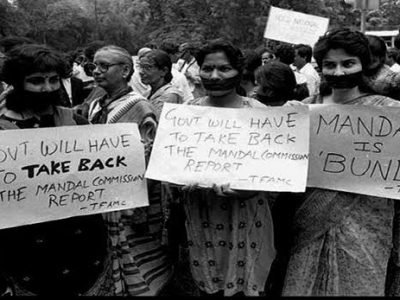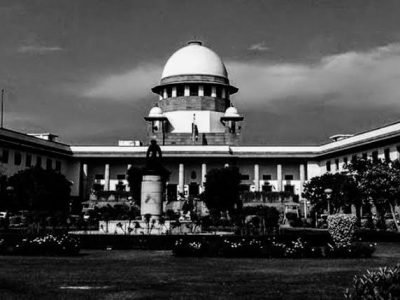
Author: Advocate Neelakshi Suneja, B.A.LLB, LL.M Advocate and Legal Researcher
Navtej Singh Johar v. Union Of India (as decided on 6th September, 2018)
INTRODUCTION
LGBT stands for Lesbian ,Gay, Bisexual and Transgender. In this world , many countries have accept this community and legalised homosexuality and provide equal rights and protection. The LGBT people also deserve equal respect and liberties just like any other community. In India, nobody wants to talk about homosexuals and their rights. As per law, Section 377 of the Indian Penal Code talks about the unnatural offenses. The constitutionalilty of Section 377 or criminalization of homosexuality were controversial issues . Article 14, 15 and 21 of the Indian constitution, automatically comes into picture if there is any breach of fundamental rights. Section 377 of IPC deals with the provisions of sexual conduct with minors , rape, forceful or unnatual offenses.Section 377 of IPC, 1860,talks about Unnatural Offences. According to the said Section of IPC ,if anyone has voluntary carnal intercourse by going against nature with any individual, whether a man, woman or even an animal, that person is liable for punishment of life imprisonment and/or fine. According to Section 377, homosexuality is punishable and unconstitutional , and the people who belong to LGBT group, are not enjoying the same rights as other people. On September 6 of 2018 The Supreme Court has held that “consensual conduct among adults of similar sex type has to be criminalized”.
In the Navtej Singh Johar case the Apex Court discussed the opinions of the bench and also examined if Section 377 actually violated fundamental rights.
ESSENTIAL DETAILS OF THE CASE
- CASE TITLE: Navtej Singh Johar vs. Union Of India.
- CITATION: AIR 2018 SC 4321.
- FULL NAME: Navtej Singh Johar & Other. vs. Union Of India thr. Secretary Ministry of Law and Justice [Writ petition (Cri.No. 76 of 2016)].
- THE COURT: The Supreme Court of India
- DECIDED CASE: Sept. 6,2018
- COURT BENCH: Dipak Mishra, Rohinton F. Nariman, A. M. Khanwilkar, D.Y.Chandrachud, Indu Malhotra.[1]
- PETITIONER: Navtej Singh Johar & Other.
- RESPONDENT: Union Of India thr. Secretary Ministry of Law and Justice
FACTS OF THE CASE
The petition challenged the constitutionality of Section 377 of the Indian Penal Code by Navtej Singh Johar , a dancer , a member of LGBT community, who prayed for a right to
choose a sexual partner as per the Article 21 of the Constitution or right to sexuality .
He also wants to declare Section 377 as unconstitutional.
In Naz Foundation v. Government of NCT of Delhi and ors.[2]deemed by the High court of Delhi that the Section 377 of IPC is unconstitutional. This judgement was challenged by some religious groups and further in the case of Suresh Kumar Koushal vs. The Naz Foundation this matter of Section 377 was held rejected by the court of Justice[3].
Instead of the question whether Section 377 was unconstitutional or not , the respondent contended that whether the homosexulity was against the Constitutional concept.
ISSUES
Some of the issues raised in the case of “Navtej singh johar case” were 1. Is Section 377 violating the right to privacy ; 2. Is Section 377 violating article 19(1)(a) which deals with freedom of speech and expression ;3. Is this said Section of IPC violating Art.15 and Art.21 of the Indian Constitution ? 2. Is the judgement of the Suresh Kumar Koushal case given by the Court ,proper or not proper ?[4]
ARGUMENTS BY PETITIONER
The petitioner argue :-
1. That Section 377 is violating Article 14 ;
2. That Section is also violating the Article 21 ;
3. That Section 377 is violating article 19 clause 1(a) which deals with freedom of speech and expression ;
4.That said Section of IPC violating Art.15 of the Indian Constitution;
5.That Section 377 is unconstitutional.
ARGUMENT BY RESPONDENT
The respondent argue :
- that Section 377 is not violating Article 14 of the Constitution ;
- that Section 377 is not violate Article 15 of the Constitution as this article prohibits the discrimination and this article is not specifically talking about sexual orientation.
- That right to privacy can’t be extended to indulging in offences which are unnatural in nature.
FINAL JUDGEMENT
The Supreme court overturning own its own verdict in Suresh Kumar Koushal case on September 6, 2018, held that consensual sexual conduct between adults in private including homosexuality is constitutional.
The bench of Apex Court which comprised Honorable Chief Justice Dipak Misra, Justice Rohinton Fali Nariman,Justice A.M. Khanwilkar ,Justice D.Y. Chandrachud and Justice Indu Malhotra held that Section 377 was unconstitutional.[5] By overruling its own verdict in the case Suresh Kaushal vs. Naz Foundation (A.I.R 2014 1 SCC 1) the court upheld that the Section 377 is Constitutional[6] .
The similar verdict has been passed in the case of National Legal Services Authority vs. Union Of India (A.I.R. 2014 5 SCC 438) , held that gender is one of the trade of identification. It is the inherent quality of one’s personality and not accepting this would violate one dignity. After reading the judgment where the court concluded that the criminalization of homosexuality violates the right to equality which is one of the fundamental rights provided under Indian Constitution. Honorable Chief Justice Dipak Misra announced that the respected court observed that it is irrational , arbitrary as well as unconstitutional.
Further it was ruled by the court that the members of LGBT community of India , entitled by the law to enjoy all the constitutional, and fundamental rights provided under the constitution. Furthermore, all the liberties of the LGBT community will be protected as per our Constitution.
JUDGEMENT REASONING
The right of choosing a partner for fulfilling the sexual intimacies is not counted as the subject of discrimination as per the constitutional protection laws .The judgment also made it clear that the community will get equal and same citizenship rights and also get protection by law without any discriminatory behaviour .
Right to Privacy is a fundamental right which was held in the case of JUSTICE PUTTASWAMY vs. UNION OF INDIA and Ors.[7] In the Suresh Koushal case, Hon’ble Court held that Section 377 is not violating the right to privacy. Therefore, they are not abridging the fundamental rights of LGBT .The makers of the Constitution have never implied that the fundamental rights are only for the protection of the majority’s right and not for the minority group.
This view was false in the eyes of the court. It is the duty of the court to protect the right of each and every citizen of India. In the same way, the right to privacy is for all whether major or minor including LGBT community members. Right to privacy is part of Article 21 i.e., Right to life and Personal liberty . Section 377 talks about the personal liberty of homosexuals or their right to live in a manner as the other people are living .And according to the Chief Justice Dipak Misra and as per law the LGBT community members is also a citizen of India or as Indian Citizen they are entitled to enjoy all fundamental rights given in part III of the indian Constitution. .
CRITICAL ANALYSIS
The judgement of Suresh Kaushal was not proper because as the verdict said that the LGBT groups are also the citizens of India and they are eligible for equal respect.Their rights should be protected under the constitution. And the judgement is only talking about the offence of carnal intercourse which is against the order of nature but does define the term “order of nature”.
According to the above argument it is clear that Section 377 restricts the LGBT community. After decriminalization of the said Section ,they can travel openly in the country .Today,they are free to express their views in public and also have the right to choose same sex partners. Only after the Navtej Singh case verdict, they have got all the rights , all the liberties[8] .
In India, after the pronouncement of this verdict some organizations or some general people were not satisfied with the verdict of the Supreme court . Organisations like All India Muslim Personal Board and Jamaat-e-Islami Hind showed their disappointments towards the Apex Court decision that homosexulity has been decriminalized and Section 377 of India Penal Code is unonstitutional[9] . This shows that changing the mindset of the society and organisations towards the LGBT group is still a challenge.
CONCLUSION
By reading and researching on the Case “ Navtej Singh Johar vs. Union Of India” the Author concluded that now equal citizenship rights are provided to the person who belongs to LGBT group as upheld by the respected court . The LGBT that is , Lesbians, Gay,Bisexuals and Transgenders Community has been provided equal protection of their rights and liberties by the law.
Thus , Section 377 of the Indian Penal Code , 1860, which talks about homosexuality or the consensual relationships between same sex adults, will continue to apply on non-consensual activities which are against the sexual conduct or act of minors as well as bestiality .
The supreme court Bench observed that the sexual orientation & the gender identification is becoming discriminatory factor of any individual , also Section 377 of the Indian Penal Code violating the fundamental rights provided under the indian constitution . The Respected Court further found that ,with the violation of article 14 , 15 , 19 and 21 of the constitution . They also referred to some recent landmark judgements such as NALSA vs UNION OF INDIA where the court recognized the rights and identity of transgenders.[10] And in Justice K.S Puttaswamy vs. UOI where the court recognized one fundamental Right that is the right to privacy.
The “Amnesty International” ,”RSS” are satisfied with the judgement given by the Court.[11] The verdict now holds long standing value for those countries where there ,the homosexulity has to be criminalized .
Now, after discussing this case of Navtej Singh Johar vs. Union Of India and the rights of Homosexuals and as per the survey of the different LGBT activists from various parts of our nation ,we can conclude that the life of LGBT people as compared to previous time is much simpler and relaxed . Obviously, everyone needs time to accept changes, this same applies to society . Very soon, society will also accept the LGBT group and the rights of this community.
REFEERENCES
-
Writ petition (criminal)no.76of 2016. ↑
- (2009)111 DRJ 1 ↑
- Pritam Joshi ,Case Comment on Navte Singh Johar v.Union of India,legal service India E-journal.https://www.legalserviceindia.com/legal/article-3662-case-comment-on-navte-singh-johar-v-union-of india.html.↑
- Pritam Joshi,Supra note 22 , at 14. ↑
- Pritam Joshi, Supra note 20, at 14. ↑
- Pritam Joshi Supra note 22, at.14. ↑
- (2017)10SCC1 ↑
- Pritam Joshi, Supra note 22, at 14. ↑
- Reaction to Section 377 verdict/ jamaat-e-Islami Hind expresses dismay, The HINDU , ( Sept. 06, 2018 , 12:24 IST), https://www-thehindu-com.cdn.ampproject,org/v/s/www.thehindu.com/news/national/live-reactions-to-supreme-court-judgement-on-Section-377/. ↑
- National Legal Services Authority of India v. Union of India & Ors.(2014) 5 SCC 438. ↑
- Bhadra Sinha & Ashok Bagriya , Section 377verdict live: RSS says homosexuality not a crime , but same sex marriages agaiinst nature, HINDUSTAN TIMES, (Sept 06, 2018 05:08 PM IST). https://www-hindustantimes-com.cdn.ampproject.org/v/s/www.hindustantimes.com/india-news/supreme-court-verdict-on-Section-377-live-updates/.↑







